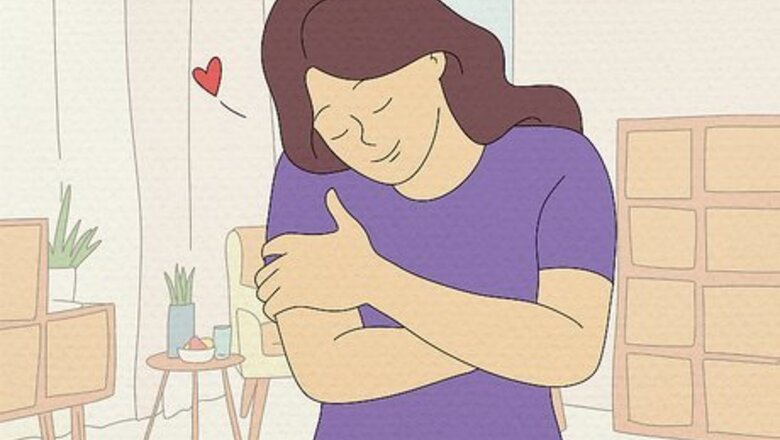
views
- A “villain era” is when someone decides to prioritize themselves, even if others find it disagreeable.
- Embrace your own villain era by setting boundaries, learning to say “no” more often, and asking for what you want, whether or not it makes others uncomfortable.
- The term likely originated on TikTok and other social media as a feminist response to societal expectations that women be passive or work to please others.
What is a “villain era?”

A “villain era” is when you decide to put yourself first. Contrary to how it may sound, having a “villain era” doesn’t mean being cruel or unkind. Rather, it simply means prioritizing yourself, setting boundaries, and learning to say “no” to protect your own mental health. It’s just called a “villain era” because people might think you’re being cold or callous when they bump up against those boundaries, but that’s not your problem. On social media, the word “era” is often used to describe a phase or a period in someone’s life.
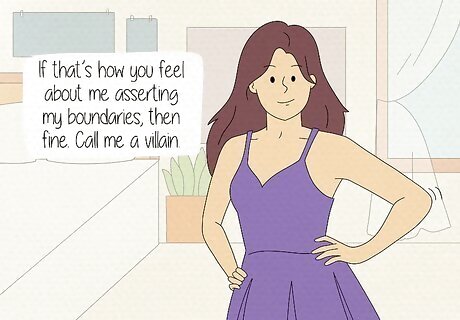
The “villain era” is closely tied to feminism and equality movements. At its core, the idea of a “villain era” empowers women in particular, who are more often expected to be agreeable, more submissive, or less assertive than their male counterparts. Many women find that when they don’t display these qualities, they’re seen as “bossy” or “abrasive.” The villain era is all about saying, “If that’s how you feel about me asserting my boundaries, then fine. Call me a villain.” Some take issue with the term itself, (rightfully) pointing out that a woman, or anyone, asserting themselves and demanding respect shouldn’t be seen as villainous.

The “villain era” trend was popularized on TikTok. Like many a viral self-care moment, the “villain era” gained steam on TikTok, where users expressed their own frustrations when it came to people-pleasing and breaking their backs to seek other people’s approval. The trend then spread to other platforms, like Instagram and Twitter, until it became something of a movement. The term might also have its roots in the hit HBO show Euphoria, in which a certain character declares that she’ll “play the villain” since that’s what other characters expect of her.
Embracing Your Villain Era
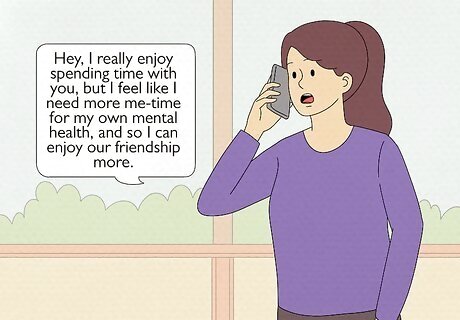
Set personal boundaries to protect your mental health. Every relationship needs boundaries, whether it’s a relationship with a romantic partner, family member, friend, or coworker. To set boundaries, first think about what you need to be your best self—personal space to feel comfortable, more time on a project at work, for someone to refer to you a certain way, etc. Then, communicate that need and explain why it’s necessary, and why it’ll help everyone involved. For example, if you need some space from a friend, say, “Hey, I really enjoy spending time with you, but I feel like I need more me-time for my own mental health, and so I can enjoy our friendship more.”

Learn how to say “no” to protect your time and energy. If you routinely take on extra work or submit to requests that make you uncomfortable, you might be a bit of a people pleaser. Part of your villain-era journey is learning to protect your own comfort and mental health, and that means starting to say “no” to things that you don’t have the energy, time, or mental bandwidth to do. The more you say “no,” the more people will think twice before they make unrealistic requests of you. For example, if your boss assigns you yet another project, you might say, “Can we talk about my work load? I worry that having so much on my plate is spreading me thin and hurting my performance. Can we get another employee on this project?”
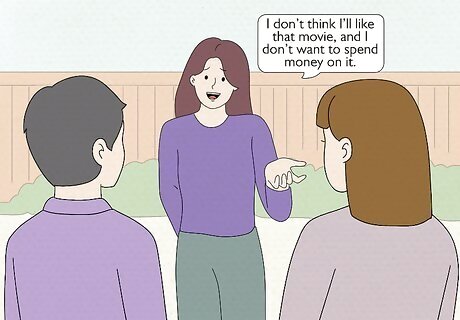
Ask for what you want, when you want it. Too often, we refuse to ask for things we need, held back by the worry that it will make us look greedy or demanding. But the only way to get help is to ask others for it and let them know you need it. The squeaky wheel gets the grease, after all. At the very least, there’s no harm in making your desires known. Worst case, you don’t get them. But best case? You get everything. For example, if your friends want to see a particular movie you have no interest in, you might say, “I don’t think I’ll like that movie, and I don’t want to spend money on it. How about we see this instead?” You may need to compromise, but compromise is better than going unheard. If you don’t see that movie now, maybe your friends will agree to see it next week.
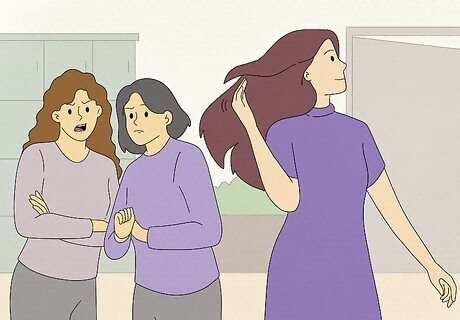
Ditch people-pleasing, and don’t apologize for who you are. People pleasing is a dangerous trap, because the reality is that you’ll never please everyone. Stop people pleasing by turning inward and focusing on pleasing yourself. Think: What do you value? What makes you happy? Focus on achieving your own satisfaction before satisfying anyone else. You may find that the people around you will start giving more of themselves, in turn. Also, don’t be afraid to be yourself! Changing yourself for another person only makes them more comfortable, not you.

Be kind and compassionate, not an actual villain. You don’t have to actually be a villain in your villain era. Even as you start asserting your boundaries, saying no, and giving up people-pleasing, doing so with kindness and compassion helps others to see your perspective and understand your needs. Communicate with patience, and always treat others as you want to be treated. Also, avoid assigning blame, and focus on the things you yourself have control over. When you focus the discussion on yourself, it encourages the people around you to be more responsible, as well.
Related Terms

Corporate villain era A corporate villain era is just like a normal villain era, but specific to your work and professional life. It’s about not letting your boss or coworkers push you around, take advantage of you, or step all over you. Instead, you do only the work assigned to you, take full advantage of your vacation time, and take it to HR when workplace conflicts get out of hand. Another part of a corporate villain era is maintaining a work-life balance, and not letting work spill over into your personal life.

Divine feminine The divine feminine is the idea that everyone has within themselves a feminine energy that’s characterized by interiority. It’s also associated with creativity, intuition, and fertility. Part of a villain era is protecting this divine feminine energy within yourself, making sure that you have the time and resources to nurture your creative and intuitive sides, rather than being drained by other people’s energies. Similarly, the “dark feminine” is the idea that women may need to act more assertive or aggressive in order to attain equality and respect.
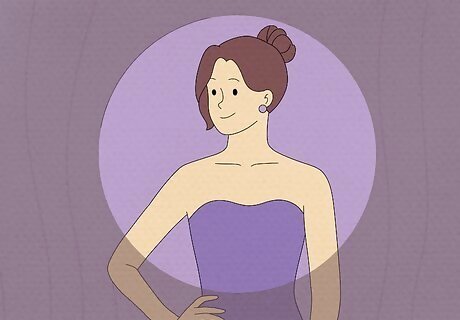
Main character energy Main character energy is a vibe that someone gives off when they live a confident, self-assured, and unapologetic life—like they’re the main character in a book or movie. It overlaps a lot with the idea of a villain era, but the difference is that a villain era is more about defying other people’s expectations, while main character energy is about living your own fantasy.

















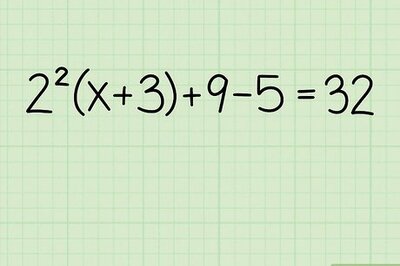

Comments
0 comment